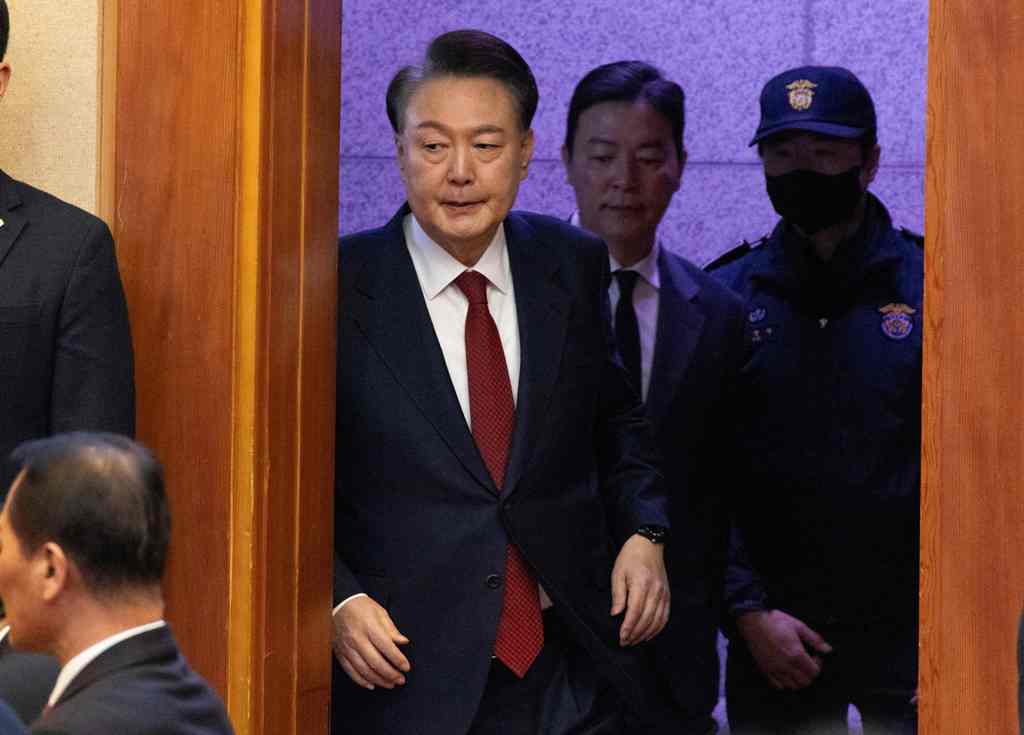SEOUL (AFP) – South Korea’s ousted President Yoon Suk Yeol faces potentially his last impeachment hearing Thursday over his failed martial law bid before judges begin deliberations on whether to formally remove him from office.
The former prosecutor has remained defiant through weeks of hearings at Seoul’s Constitutional Court, blaming a “malicious” opposition for his December bid to suspend civilian rule.
The attempt only lasted six hours as the opposition-led parliament voted the declaration down, later impeaching him over his attempt to impose martial law.
Yoon was detained last month on insurrection charges, becoming the first sitting South Korean head of state to be arrested.
The ousted president arrived at the court around 09:00 am local time (0000 GMT), an AFP journalist saw.
Thursday’s hearing is set to hear evidence from the former chief of South Korea’s intelligence service and one of the heads of Seoul’s Capital Defence Command, the military unit dispatched to the parliament during the short-lived martial law bid.

It is widely expected — but not officially confirmed — to be Yoon’s last hearing before the court’s judges go behind closed doors to deliberate whether to uphold his impeachment.
The lawyers prosecuting the case said Thursday “the time is ripe for a constitutional assessment”, adding they will “humbly await the outcome of the impeachment trial”.
That process could take over a week to a fortnight — formerly impeached Presidents Park Geun-hye and Roh Moo-hyun had to wait 11 and 14 days, respectively, to learn their fates.
“Many legal scholars and experts agree that a unanimous ruling in favour of impeachment will be made by the Constitutional Court judges,” Kim Hyun-jung, a researcher at the Korea University Institute of Law, told AFP.
But experts also warn that political wrangling could hold up the trial — prominent conservative supporters of Yoon have called for more hearings to be held.
An additional judge could also be approved to the Constitutional Court’s nine-member bench, which is currently one member short.
If the court upholds the impeachment, an election must be held within 60 days to choose a new president.
Much of Yoon’s impeachment trial has centred on the question of whether he violated the constitution by declaring martial law, which is reserved for national emergencies or times of war.
Yoon’s lawyers said in a statement to reporters on Thursday that his declaration of martial law was “an act of governance and cannot be subject to judicial review”.
Yoon suggested last week that even if he had ordered the arrest of MPs to prevent them from voting down his decree, it would not legally matter because it had not been carried out.
He is also facing a criminal trial on insurrection charges, for which he faces a prison sentence or the death penalty.





